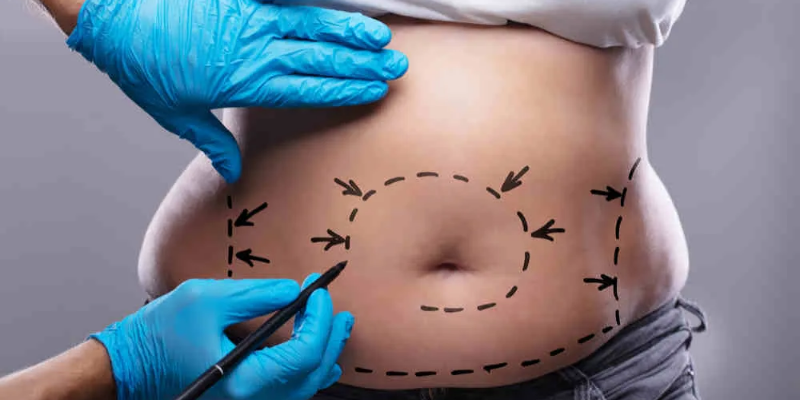Best Place To Have Weightloss Surgery
Work closely with your dietician and general surgeon after surgery to get the most out of your weight by choosing the best place to have weightloss surgery. In addition to working with a nutritionist, you may also see a psychologist during treatment to talk about the behaviors that lead to eating disorders. When you see how far you’ve come in your weight loss journey, you’ll be more motivated to keep going. You’ll also need to be more active than ever. As part of the process of rejuvenation, it’s important to realize that you don’t need more by eating enough, doing more social and active things, and making sports a regular part of your life.
You will still lose weight a year after weight loss surgery, but not as quickly as you did in the first month after the surgery. When you reach your ideal weight, the protection period starts and you can keep living a healthy life. After a sleeve gastrectomy, you should expect to lose between 9 and 12 pounds in the first month.
The best time to lose weight is when edema goes away and calories go down. You will need to talk to a dietician who specializes in weight loss nutrition after bariatric surgery. After surgery, it’s best to stick to a low-calorie meal plan that gives your body the minerals and protein it needs. You should change up your eating plan often to keep your weight loss and motivation going. A very common way to lose weight around the world is to drastically reduce the size of the stomach. During the first 12 to 18 months of treatment, about 80% of the extra weight is lost. This, however, depends on the patient and other factors.
Where’s The Best Place To Have Weightloss Surgery?
Obesity is caused by not being active, having to live in small spaces, eating packaged foods with chemical compounds, and having a family history of being overweight. It is a problem that people all over the world have to deal with. Obesity can cause more serious health problems than just not being able to lose weight. If it isn’t treated, it can lead to even more serious health problems. The BMI test is used to figure out if someone is obese, and if they are, it will continue to be a problem that lowers their quality of life and makes it hard for them to move around.
Even here in the United States, the number of obese people is going up. The procedure is also called obesity surgery, stomach reduction, or tube stomach. It helps people feel full after eating less food. The weight loss is fast in the first year after the surgery. The rate of weight loss is at its highest at the end of the first year. The most important thing for people who have had weight loss surgery to remember is to keep the weight off. Almost all of the time, surgery to make the stomach smaller works. People may lose weight quickly if they eat quickly.
The Best Way To Lose Weight Through Surgery
Malnutrition may cause some people to gain weight again in the future. After bariatric surgery, a nutritionist should help you plan what to eat. A diet high in protein should be emphasized, and people shouldn’t drink too much alcohol or eat too many nuts that have been processed. People who eat poorly and a lot of processed foods will always gain weight. People who have had a sleeve gastrectomy need to be more careful about what they eat. Another important thing to think about after bariatric surgery is exercise. The person should stick to a daily fitness plan that is made to fit his or her needs. People who lose weight quickly, like after a sleeve gastrectomy, might benefit from doing certain things to keep their skin from sagging. Some of these are fitness, Pilates, and swimming.
Weight loss and weight management can be done by eating well, working out, and drinking plenty of water. If someone doesn’t drink enough water, they might start to feel sick. Such as tiredness, lethargy, feeling sick, and a general feeling of being sick. Gastric sleeve surgery patients should never let themselves get too thirsty. A healthy way to lose weight starts with staying hydrated. It’s normal for your body to need more vitamins and minerals as it heals from surgery. The next step should be a prescription from the doctor for testing and supplements. Surgery is not a “periodic diet” for people who are obese. They should eat better and change the way they live for the rest of their lives.
Who Can Have Weight Loss Surgery?
A BMI of 35 kg/m2 and a weight-related comorbidity of at least 35 kg/m2. Some health problems that can occur together are diabetes type 2, high blood pressure, obstructive sleep apnea syndrome (OSAS), fatty liver, arthritis, and high cholesterol.
New guidelines from the American Society of Clinical Endocrinologists, the Obesity Society, and the American Society of Metabolic and Bariatric Surgery say that people with a body mass index (BMI) of more than 30 kg/m2 should have surgery to lose weight. Dietitians, psychologists, internists, and surgeons all work together to decide if a patient meets the criteria for surgery.
Bariatric surgery exclusion criteria are needed to keep patients from being put in danger for no reason to find the best place to have weightloss surgery. Some things, like using drugs or alcohol too much or having eating problems that can’t be fixed, can cause obesity. Also included are mental illnesses that are hard to treat or are severe, portal hypertension, advanced cancer, pregnancy, and dietary restrictions after surgery. They may not be able to work together because of problems with their minds.
Weight Loss Surgery Result
Each method has a different set of possible negative effects. Patients who have been taking steroids for a long time or who have chronic inflammatory diseases. People with diseases like Crohn’s or chronic pancreatitis should not use the adjustable gastric band. People with esophagus and severe gastroesophageal reflux disease are not advised to have the Sleeve gastrectomy procedure. Roux Y Gastric Bypass and Duodenal Switch should not be done on people with inflammatory bowel disease. As the field of bariatric surgery grows, absolute contraindications may become hard to tell apart from regular patients. Age is one of these things. So, obesity is a serious health problem that affects people who can’t lose weight no matter how hard they try to diet or exercise.
The Search for the Best Place to Get a Hair Transplant in Turkey
Turkey is well known for its expertise in the field of hair transplantation, and it has become a popular destination for those looking to get the best place to get a hair transplant. The country is home to several leading clinics that specialize in the procedure, with many highly experienced and qualified medical practitioners who can provide excellent results. In addition, Turkey offers competitive prices compared to other countries, making it an attractive choice for those looking to restore their confidence and improve their appearance. If you are considering a hair transplant, Turkey may be an ideal option for you. Be sure to research all your options carefully, and get an answer to “how much is a hair transplant in Turkey on average?” before making any decisions.
For further information about getting a hair transplant in Turkey, you can visit the website of one of the leading clinics or consult with local advisors who are familiar with the process and can provide valuable advice about choosing the right clinic for you. Additionally, there are online forums and reviews on the best place to get a hair transplant which can give insight into how satisfied people have been with their experiences at different clinics. We hope this article was useful in answering “how much it cost hair transplant in Turkey?”
Is There a Weight Loss Surgery for Low Income Patients?
Although weight loss surgery can be an effective method for achieving long-term health, weight loss surgery for low income patients can be prohibitive. Low-income individuals considering weight loss surgery should note that many resources are available to help make the procedure more affordable. Some states provide Medicaid coverage for specific bariatric procedures in cases where the patient has a BMI over 40 or 35 with other health conditions such as hypertension or diabetes. Medicaid may cover several types of surgery, and a variety of low-cost payment plans can be used to finance the surgery if needed. You can ask a Medicaid representative, “does Medicaid cover weight loss surgery?” In addition, many hospitals offer financial assistance options for those who qualify.

With these options in mind, low-income individuals can consider weight loss surgery as a possible choice for achieving their health goals. It is essential to do thorough research and consult with a healthcare professional about all available options before making any decisions. With diligent planning and research, weight loss surgery for low income patients can be an achievable goal for individuals. By taking full advantage of the resources available, individuals on a budget can find ways to get trustworthy medical care and reach their health goals safely and effectively through weight loss surgery procedures.





